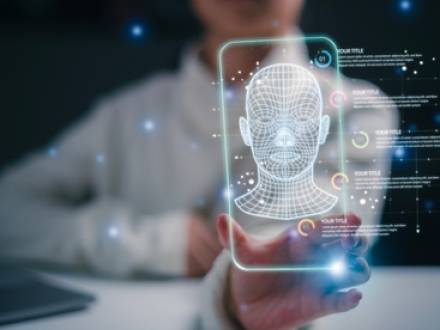Advocates Seek Details About Facial Recognition Systems Used by Police
 There are many tools used by law enforcement to investigate crimes, identify suspects, make arrests, and prosecute people on criminal charges. As concerns have grown about the increasing use of artificial intelligence (AI) in nearly all aspects of society, one particular use of this technology has raised red flags: facial recognition. Police departments are using facial recognition technology (FRT) to identify suspects, but there are a growing number of cases where the wrong people have been identified and charged with crimes.
There are many tools used by law enforcement to investigate crimes, identify suspects, make arrests, and prosecute people on criminal charges. As concerns have grown about the increasing use of artificial intelligence (AI) in nearly all aspects of society, one particular use of this technology has raised red flags: facial recognition. Police departments are using facial recognition technology (FRT) to identify suspects, but there are a growing number of cases where the wrong people have been identified and charged with crimes.
As criminal justice and civil rights advocates address the misuses of technology in ways that cause innocent people to suffer, they have taken action to gain information about the ways FRT works and how it is used by law enforcement. While this may eventually lead to some policy changes that will help protect people’s rights, those who are currently facing criminal charges based on misidentifications by police will need to understand how to respond. Representation by a criminal defense attorney who understands the best ways to protect their clients’ rights is crucial.
Advocates Argue for Increased Transparency in the Use of Facial Recognition Technology by Law Enforcement
Groups that fight to defend people’s civil liberties have advocated against the use of FRT, especially when details are not provided about how these technologies work and how they are used by police. While the creators of these systems do everything they can to keep the workings of their products secret, advocates have argued that "black box" technology has no place in the legal system. When the people using these systems, the government officials who prosecute crimes, and the public do not understand how technologies work, there is no way to know whether they are reliable.
Recently, the Electronic Frontier Foundation (EFF) and the Electronic Privacy Information Center (EPIC) filed a brief with the New Jersey Supreme Court arguing for the disclosure of information related to the use of facial recognition technology. In the case of State of New Jersey v. Miles, the defendant had been arrested based on an identification using FRT. The brief sought information about the specific FRT system used, how it works, and its error rates.
This information is necessary due to the growing number of cases in which criminal suspects have been misidentified by FRT, arrested for crimes they did not commit, and falsely charged with criminal offenses. Numerous studies of facial recognition systems have found that they are unreliable. When a criminal investigation is based on faulty information, this will not only affect the person who is wrongly arrested but the public as a whole, since the actual perpetrator will not be recognized and others may fear that they could be wrongfully identified and arrested at any time.
There are several concerns about the use of FRT to identify suspects:
-
The Technology Used: When police do not disclose the systems they use, and there is little understanding of how these systems work, defendants will find it more difficult to challenge the uses of this technology as they defend against criminal convictions.
-
Quality of Photographs: Police may try to identify suspects using images taken from security camera footage or other low-quality videos. These images are often blurry, or they may only partially capture a person’s facial features. Trying to find a match for these photos is likely to be impossible, especially when there is little understanding of the technological methods used to do so.
-
Databases Searched: FRT systems may try to find matches by searching through databases of photos, such as mug shots or driver’s license photos. However, when there is no disclosure of what databases are being searched, there is no way to tell if matches are conclusive.
-
Demographics of Suspects: Studies have found that FRT systems have high error rates, and they are more likely to make mistakes when attempting to identify people in certain demographics. These systems are more likely to misidentify people of color or transgender and nonbinary people.
Contact Our Hartford Criminal Defense Lawyers
As advocates for civil liberties address how facial recognition is used by law enforcement, police may begin to rely less on systems that are unreliable. However, until protections are put in place, there are many people who may be arrested and falsely charged with crimes based on misidentifications. To address these violations of people’s rights, it is crucial to work with a Connecticut criminal defense attorney who can fight against illegal or unethical practices by law enforcement. At Woolf & Ross Law Firm, LLC, we are here to help defendants determine their best options for fighting criminal charges and preventing convictions. Set up a free consultation with an attorney today by calling our office at 860-290-8690.






